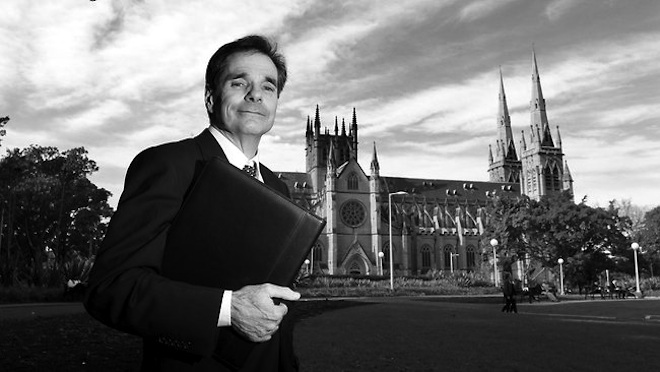Midway through the High Court's hearing of the Williams' case the government spotted a problem ... Hurried amendments to avoid the possibility of someone going to jail ... Parliament's surrender to the executive ... Rescuing the public service as well as the chaplains ... Polly Peck reports
 Rom Williams: took on the executive's spending power (pic Alan Pryke)
Rom Williams: took on the executive's spending power (pic Alan Pryke)
THERE'S an interesting little wrinkle flowing from Williams v The Commonwealth - better known as the case that scuppered the funding arrangements for school chaplains and other god-botherers.
The case was heard by the court on August 9, 10 and 11, last year and the findings were handed down on June 20, 2012.
A majority of the court found that successive governments had behaved unconstitutionally in entering into these non-legislative funding agreements.
During the hearing a few mandarins from the administration turned up in court and paid close attention to what was going on.
There was a distinct sense the Commonwealth was in difficulty, and that difficulty went beyond the funding of chaplains to the myriad of special interest programs where cash is shovelled out without parliamentary approval.
So what did the mandarins do?
They rushed back the Department of Finance and pored over the Financial Management and Accountability Act, with particular attention to s.26:
"Drawing rights required for payment etc. of public money,
An official or minister must not do any of the following except as authorised by a valid drawing right:
(a) make a payment of public money, etc …
Penalty: imprisonment for 2 years."
Yikes! Two years in the clink for spending money unconstitutionally.
The Commonwealth Solicitor General Stephen Gageler SC, as he then was, had drawn the court's attention to s.26 on day two of the hearing.
He argued that the Commonwealth had met the necessary conditions for payment of the money, including that sufficient funds were available for the program, the availability of which had been the subject of an appropriation and the existence of a drawing right under s.26(a) of FMAA.
Yet it was shaky and if the court didn't swallow that proposition then penalties loomed.
Parliamentary counsel swung into action and as soon as possible after parliament resumed this year the Financial Framework Legislation Amendment Bill (No.1) was introduced on February 16.
Among other tinkering it repealed the penalty provision of s.26 of the FMAA with the amendment taking effect from April 5.
In the second reading speech the government said the reason for the repeal was that, "it had never been used for a prosecution".
The penalty for unconstitutionally entering into spending agreements with the Scripture Union of Queensland, or anyone else on the drip without legislative approval, has now vanished.
Best to be sure, I suppose - particularly as the later amendments to the FMAA in June this year, to give effect to the High Court's findings, have come in for sniping.
Prof. Anne Twomey from Sydney Uni cast doubt on whether the Bill effectively addressed the problems identified by the High Court - that there must be a head of legislative power to support spending programs.
The government and the parliament addressed the problem by dumping into regulations a whole pile of existing and future programs - 427 of them.
The legislation was passed in just over three hours.
"It it an abject surrender of parliament's powers of financial scrutiny to the executive, and all to save a few chaplains (possibly ineffectively) ...
The Commonwealth is clearly asking for another clobbering by the court."
At least now no ministers or public servants are going to wind-up doing porridge.